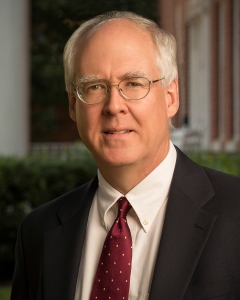Regular readers of TheEcclesialCalvinist blog are no doubt aware of the recent involuntary “retirement” of Westminster Theological Seminary Professor of Old Testament Dr. Douglas Green. Those still unfamiliar with this controversy can find my analysis here and here.
A colleague in ministry recently alerted me to a pamphlet written by my friend and former seminary professor Dr. Sinclair Ferguson, entitled Preaching Christ from the Old Testament (London: Proclamation Trust, 2002). Brief but meaty, it wrestles with the hermeneutical challenge of preaching Christ from the Old Testament while also doing justice to the historical integrity of the Old Testament texts. For those who may wish to read the entire work, this fine pamphlet is available free of charge from the Charles Simeon Trust here.
Though it does not use the term “christotelic,” the pamphlet in question presents, it seems to me, the substance of an approach that has recently become unnecessarily controversial in the case of Dr. Green. First, Ferguson recognizes, with B. B. Warfield, that there are meanings present in the Old Testament that were not necessarily apparent in that earlier context. In a passage from Warfield cited (but not quoted) by Ferguson, the Old Princetonian says, “The Old Testament may be likened to a chamber richly furnished but dimly lighted; the introduction of light brings into it nothing which was not in it before; but it brings out into clearer view much of what is in it but was only dimly or even not at all perceived before” (Warfield, “The Biblical Doctrine of the Trinity,” in Works, II:141).
Second, though he does not use Green’s exact terminology of “first and second reading,” Ferguson speaks of two ways of reading the Old Testament—one that, in the light of New Testament revelation, recognizes the Christological content present in the Old, and another that reads the Old Testament in its own historical integrity. Ferguson writes, “To read the Old Testament with the light switched off would be to deny the historical reality of our own context. On the other hand, we would be denying the historical reality of the text and its context if we were to read and preach it as though that same light had already been switched on within its own pages. Thus our task as Christian preachers must be to take account of both” (p. 4).
For example, Ferguson rightly recognizes that in Hosea 11:1 the prophet was speaking retrospectively of the Exodus of Israel from Egypt and not about the later return of the holy family from Egypt. Nevertheless, in the light of the Christ event we can see, with Matthew the Evangelist, the divine Exodus pattern of activity present in both the Old Testament and in the life of Christ. Ferguson writes:
An interesting illustration of this is the use of Hosea 11:1 in Matthew 2:15: ‘Out of Egypt I have called my son’. These words, Matthew says, are fulfilled in Christ. But isn’t this either an esoteric or naïve approach to reading the Bible? Hosea is talking about the historic event of the people of God coming out of Egypt in the Exodus, not about Jesus going to and returning from Egypt in his infancy. So what is going on in Matthew’s mind? Is he saying Hosea 11:1 is fulfilled in Jesus just as Isaiah 53 is? Yes. But not in the same sense. Rather Matthew, writing in the light of the incarnation, death and resurrection of Jesus Christ, and under the guidance of the Holy Spirit, recognises that the divine pattern in the Exodus (delivered from Egypt, led through the wilderness, given the covenant bond and kingdom-code) constitutes a pattern to be used in the experience of the true Israelite, Jesus Christ. In doing this Matthew provides us with a key to reading and expounding the entire Exodus narrative in a Christo-centric way, and indeed his own narrative against a background that enriches our understanding of Jesus’ identity and ministry (p. 12).
I will also say that all this is quite consistent with what I was taught at Westminster Theological Seminary back in the mid-1980s, that it is rather clearly rooted in the best of the Reformed tradition, and that it should be thoroughly uncontroversial.

